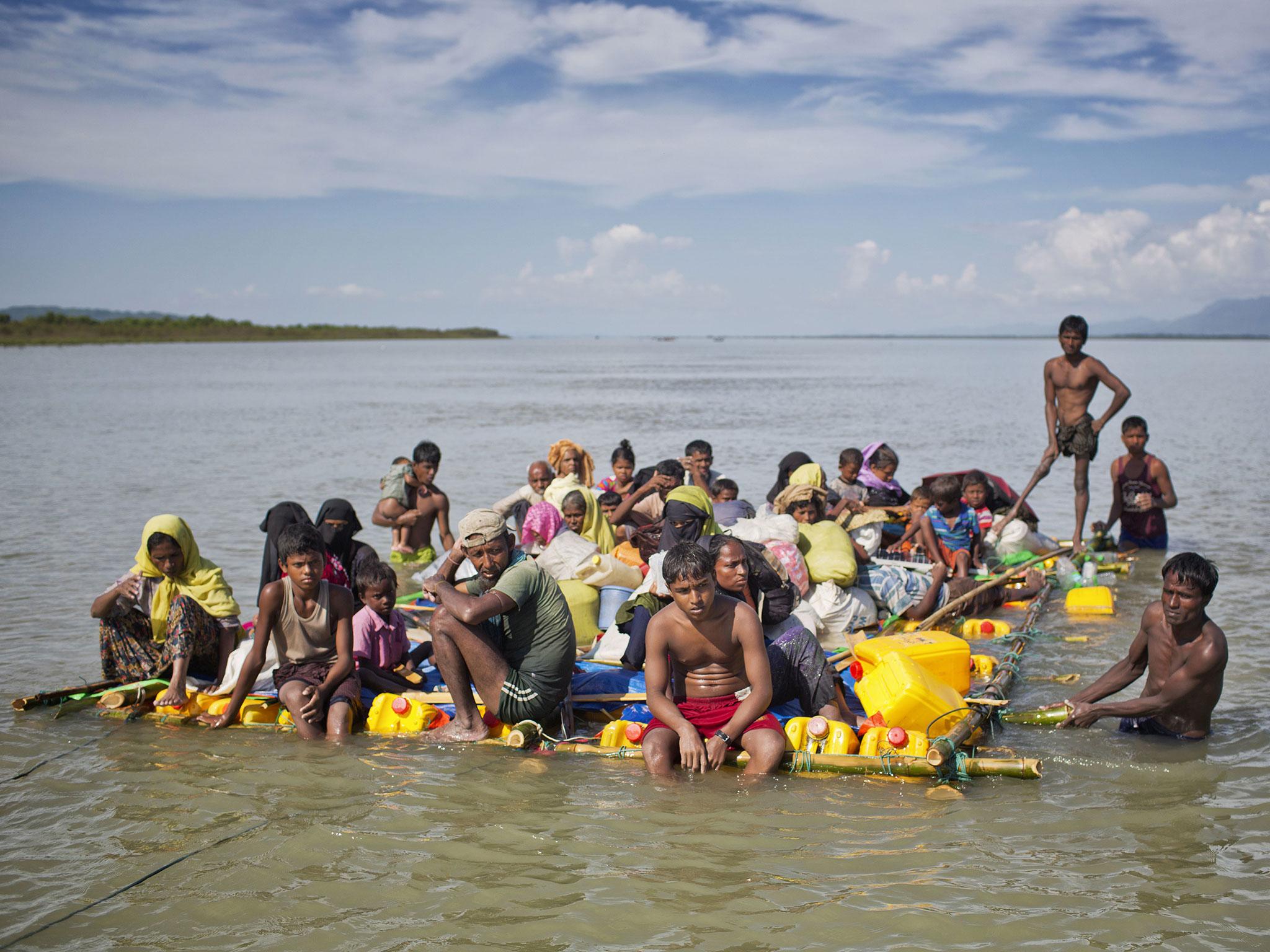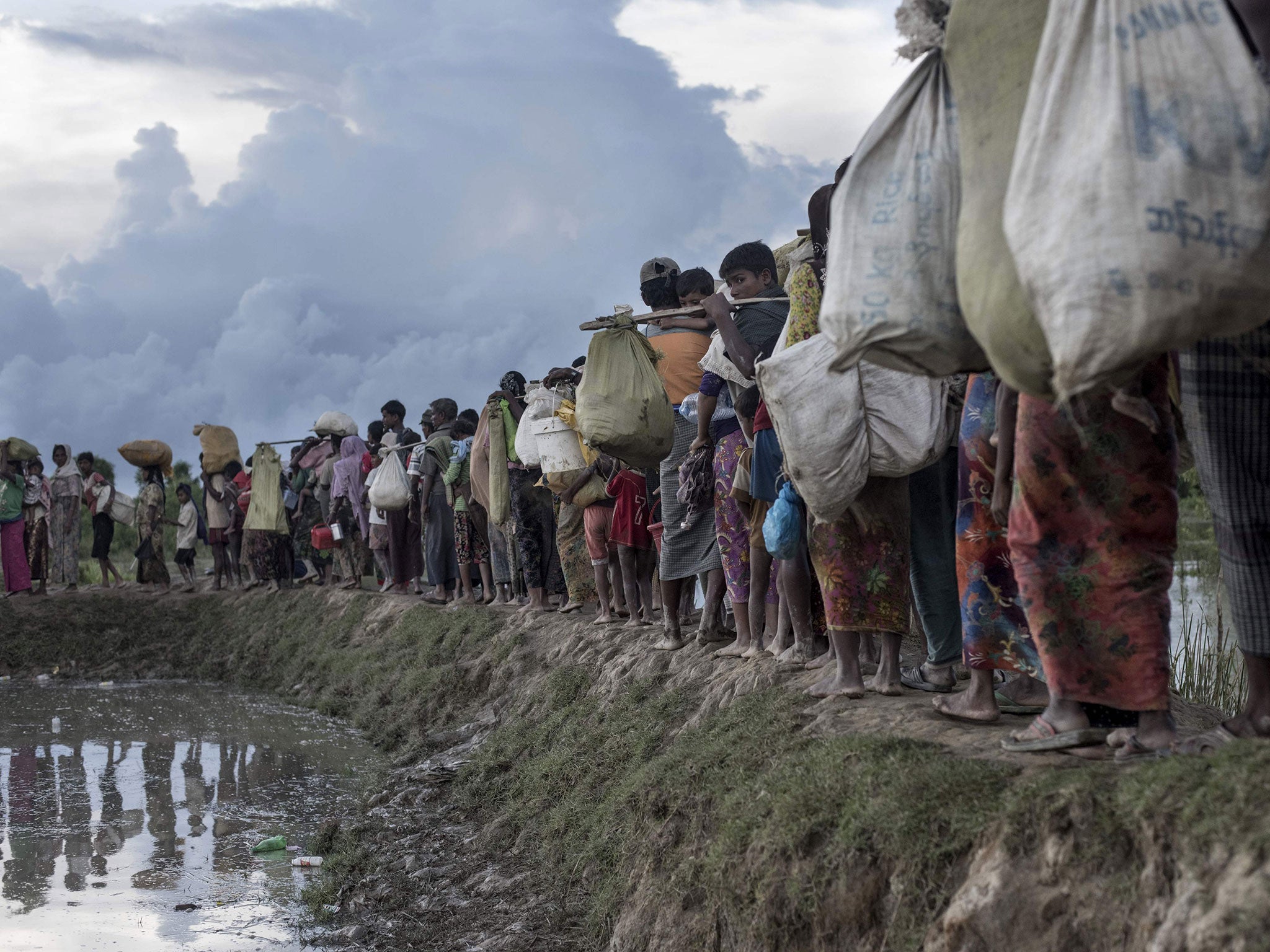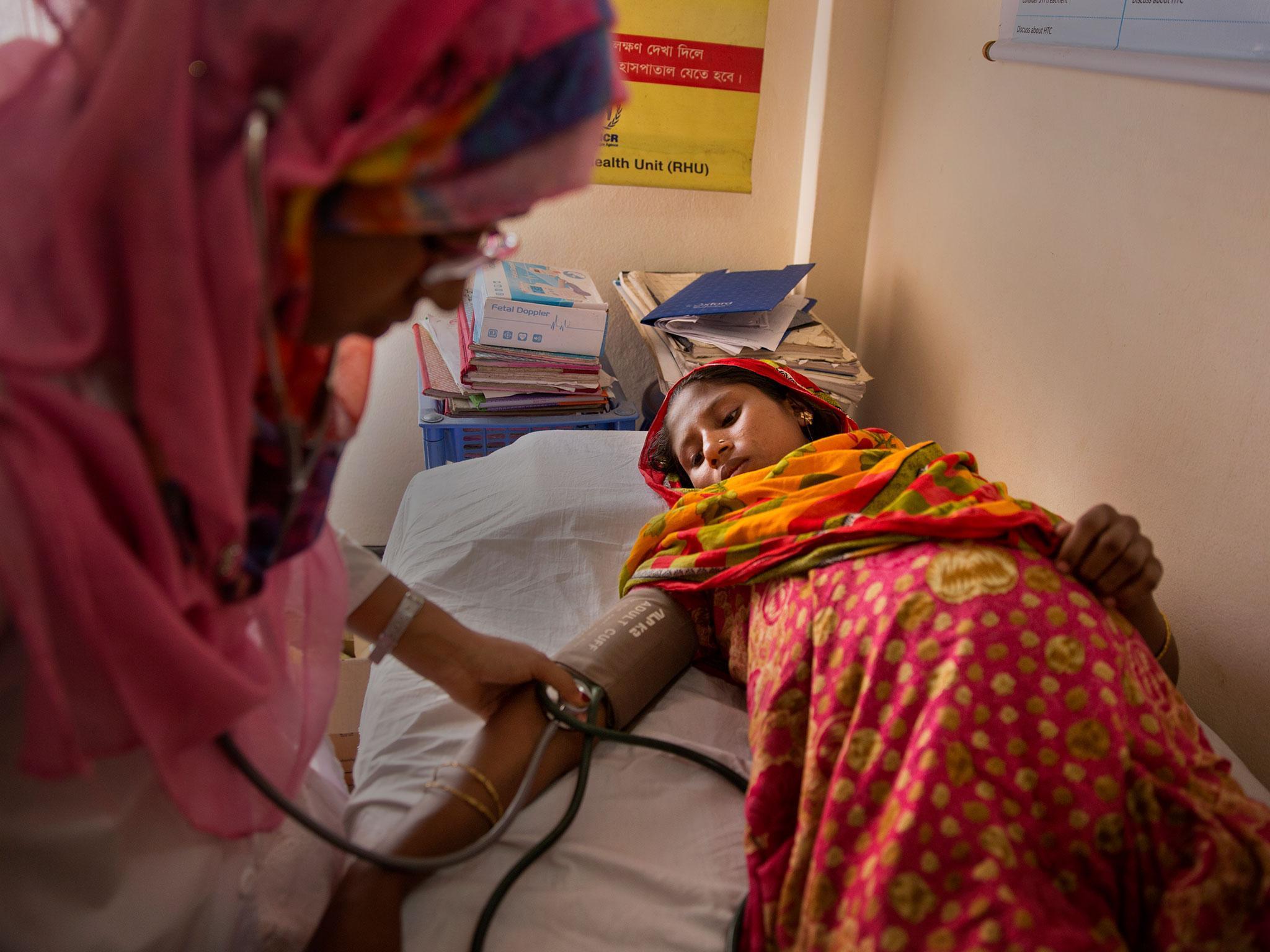Rohingya refugee crisis: Midwives reveal harrowing stories from pregnant Muslim women fleeing Myanmar violence
Exclusive: Many arrive in the camps malnourished after days without food and have witnessed members of their family being killed
Your support helps us to tell the story
From reproductive rights to climate change to Big Tech, The Independent is on the ground when the story is developing. Whether it's investigating the financials of Elon Musk's pro-Trump PAC or producing our latest documentary, 'The A Word', which shines a light on the American women fighting for reproductive rights, we know how important it is to parse out the facts from the messaging.
At such a critical moment in US history, we need reporters on the ground. Your donation allows us to keep sending journalists to speak to both sides of the story.
The Independent is trusted by Americans across the entire political spectrum. And unlike many other quality news outlets, we choose not to lock Americans out of our reporting and analysis with paywalls. We believe quality journalism should be available to everyone, paid for by those who can afford it.
Your support makes all the difference.Midwives working in refugee camps in Bangladesh have recounted the harrowing experiences of pregnant Rohingya women who fled from neighbouring Myanmar.
The mothers said they had seen family members raped and killed by Buddhist extremists and Myanmar’s security forces.
In posts on Facebook the midwives also described how mothers with newborn children arrived in Bangladesh without fresh clothing, and pregnant women were malnourished after having walked for days without food.
“We’ve had women come having lost their entire family,” Dr Sathya Doraiswamy, chief of health at the United Nations Population Fund (UNFPA) in Bangladesh, told The Independent.
“The stories we’ve actually heard are various degrees of violence, ranging from emotional to physical to sexual violence.
“The main impact of what we see among the women and girls is that they have been subject to violence themselves, but in several other instances they have been witness to violence that has been inflicted on their very close family members.”
Over the last six months more than 700,000 Rohingya Muslims have fled to Bangladesh from Myanmar, where there have been widespread reports of killings, rape and the burning of homes, leading to accusations the state is guilty of “ethnic cleansing” or even genocide.
More than half of those affected by the crisis are women and girls, Dr Doraiswamy said. He said the UNFPA has helped deliver 1,827 babies and provided antenatal care for more than 51,000 Rohingya women.
In Facebook posts shared with The Independent, a UNFPA-trained midwife said one Rohingya refugee came to her with labour pains soon after she and her husband arrived in Bangladesh. The mother, identified as Hasina Khatu, said the pain had started a day earlier when she was in Myanmar, and had increased slowly as she fled by boat.
“When I asked her about her family members, she told me that her only son who was aged two had been killed by the Myanmar army. She also lost her mother, father and sister. She told me her younger sister was raped and killed by the Myanmar army. When she told me this history she was crying.”
When the midwife gave Ms Khatu food, she said she had not eaten for at least two days. Later that night she delivered two premature boys. One weighed 2kg while the other weighed 2.2kg.
Another midwife described how one mother whose husband had been killed in Myanmar had no clothes to change her baby after she gave birth. “She had nothing in Bangladesh, she had lost everything in Myanmar,” the midwife said.
Other mothers arrived in Bangladesh with their children after walking for days without food.
One midwife said a mother and husband told her they had walked for four days with their newborn and older daughter after all of their family members were killed in Myanmar. “In four days they only drank a small amount of water and some dry food. I made sure they had food. I prayed that things would be better for them.”

Around 80 UNFPA-trained midwives have been providing sexual and reproductive health services through Bangladesh ministry of health facilities and in makeshift settlements formed near the refugee camps.
They also created around 19 women-friendly spaces where female refugees can share their experiences, and some choose to open up about the violence they have suffered.
Some were the victims of intimate partner violence, which Dr Doraiswamy said women in the camps were at a high risk of experiencing, and others had experienced sexual violence and rape at the hands of strangers.
“There is not adequate lighting in the camps, and the toilets are not always family toilets. Women have to walk long distances. Even to fetch water there is quite a bit of distance they have to walk. Along any of these points they face a very high risk,” Dr Doraiswamy explained.

However, he said the women-friendly spaces have been “quite effective”. He added: “For women who have undergone so much trauma, it actually brings about a calming experience when they come into these spaces. The sheer number of people we have been able to reach in the last six months has been quite telling in terms of the impact the UNFPA has had.”
The UNFPA has also distributed around 88,000 dignity kits, which contain clothes, soap, a comb and sanitary wear for women and girls.

Dr Doraiswamy called on the international community to provide funding to maintain UNFPA services, which he said are in high demand among women and girls in the camps.
He said “software sectors” such as women-friendly spaces were often seen as less important than work on shelters, water and sanitation, which he termed “hardware materials”.
He added: “For us to be able to maintain this on a medium to longer term, these kind of services need to be sustained, and the international community needs to pay close cognisance of this.
“Often, the presence of pregnant women or survivors of gender-based violence is forgotten. And that should not be the case.”

Join our commenting forum
Join thought-provoking conversations, follow other Independent readers and see their replies
Comments